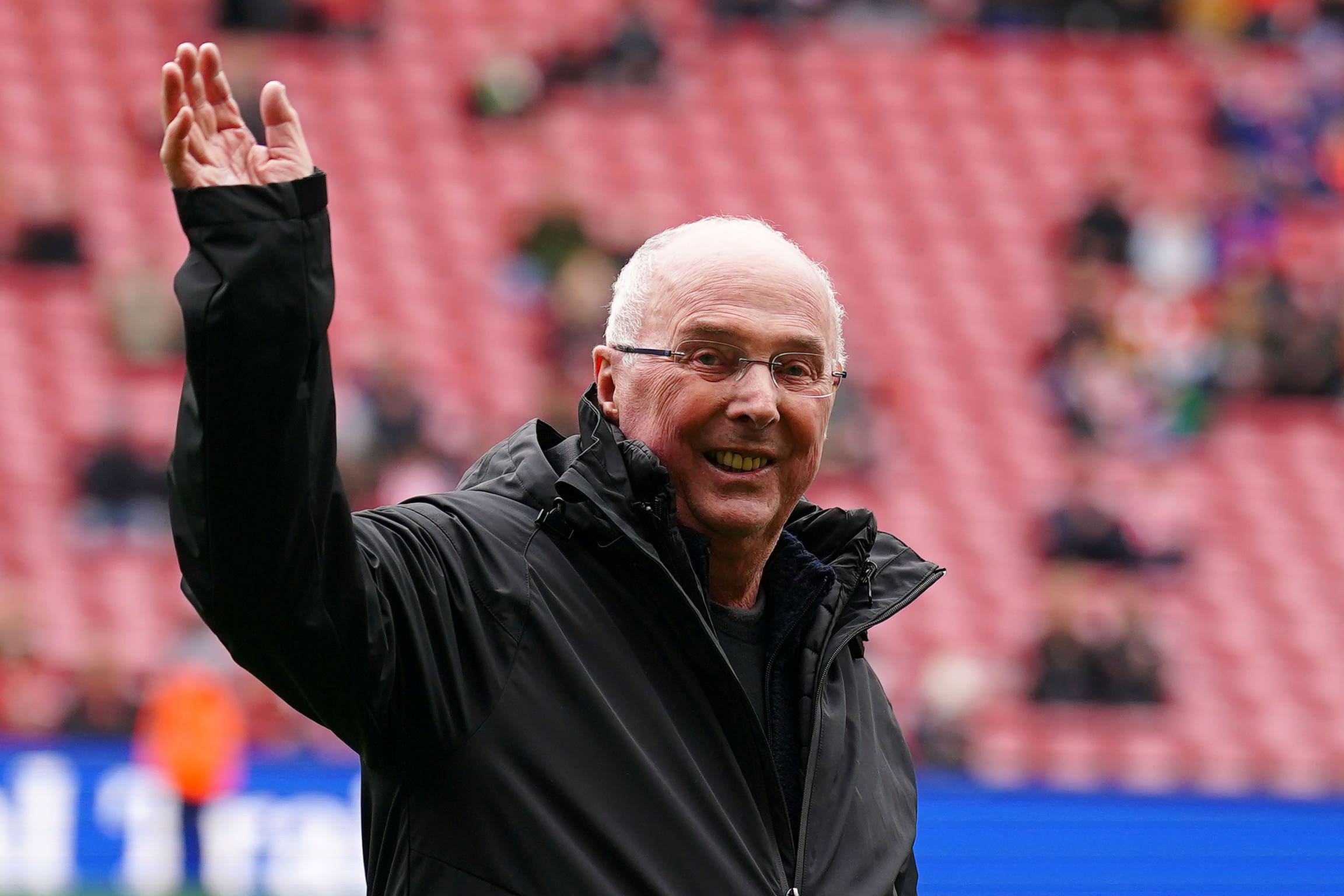Sven-Goran Eriksson’s family thanks football for support after his death
Eriksson died on Monday aged 76.

The family of Sven-Goran Eriksson has thanked the football world for making his last months “unforgettable”.
The Swede, best known in England for being the country’s first overseas manager between 2001 and 2006, died on Monday aged 76 surrounded by his family.
He revealed in January that he had been diagnosed with pancreatic cancer and had been told he had “best case” a year to live.
That led to an outpouring of love and support towards Eriksson, including the opportunity to manage his beloved Liverpool in a charity match at Anfield in March.
A statement from his children Lina and Johan said: “Dad told us at the beginning of this year about his serious illness and received an amazing response from friends and football fans around Europe. He was invited to several football teams in England, Italy, Portugal and Sweden.
“They shared their love for football and for dad. It was unforgettable for both him and us. He expressed his appreciation and joy and stated that such beautiful words are usually only uttered when someone has died.”
Eriksson admitted he had shed tears before and after the Liverpool ‘Legends’ match, and said: “To sit on the bench for Liverpool, that’s been my dream my whole life. Now it happened, and it was a beautiful day in all meanings.
“It’s a good finish, to finish with Liverpool, it can’t be much better than that.”
Eriksson led England to the quarter-finals of three major tournaments in succession, including the World Cups of 2002 and 2006.
He was appointed after a successful career in club management, notably in Italy, where he won a Serie A and cup double, as well as the European Cup Winners’ Cup, with Lazio.
He returned to the World Cup with Ivory Coast in 2010 and also had spells in charge of Manchester City and Leicester among stints in several other countries in a lengthy career.
He was never far away from the headlines during his time in England where, apart from football, his private life was a seemingly-endless source of fascination for newspapers.
Football Association chief executive Mark Bullingham paid tribute to Eriksson, who famously led England to a 5-1 win over Germany in a World Cup qualifier in Munich in September 2001.
“This is a very sad day. He gave all England fans such special memories. No one can ever forget the 5-1 victory in Munich against Germany under Sven’s guidance,” Bullingham said.
“Sven will be rightly recognised and forever remembered for his significant work with the England team, and for his wider contribution to the game.
“On behalf of my colleagues at the FA, past and present, our thoughts are with his friends and family today. He will be much missed, and we will pay tribute to him when we play Finland at Wembley next month.”
The Prince of Wales, the FA’s patron, described Eriksson as “a true gentleman of the game”.
Eriksson took on the England job after Kevin Keegan quit following a World Cup qualifying defeat to Germany in the last match at the old Wembley Stadium.
The Swede inherited a side regarded as England’s ‘Golden Generation’, featuring players like David Beckham, Paul Scholes, Steven Gerrard, Frank Lampard, Michael Owen and latterly Wayne Rooney.
They were beaten 2-1 by eventual winners Brazil at the 2002 World Cup finals in Japan and South Korea before Portugal twice eliminated England in penalty shoot-outs at Euro 2004 and the 2006 World Cup in Germany.
Eriksson’s life and career is the subject of a new Amazon Prime Video documentary which was released on Friday.
“I hope you will remember me as a positive guy trying to do everything he could do,” he told the programme’s makers when asked about his legacy.
“Don’t be sorry, smile. Thank you for everything, coaches, players, the crowds, it’s been fantastic. Take care of yourself and take care of your life. And live it.”
Don’t be sorry, smile. Thank you for everything, coaches, players, the crowds, it’s been fantastic. Take care of yourself and take care of your life. And live it.
Eriksson first enjoyed coaching success in Sweden, leading IFK Gothenburg to the 1982 UEFA Cup.
He took his skills to Portugal to take charge of Lisbon giants Benfica, where he won successive top-flight titles in 1983 and 1984. In a second spell with the Eagles between 1989 and 1992 he led the team to the 1990 European Cup final and the 1991 Portuguese league title.
As well as his successful stint at Lazio, he also coached their local rivals Roma, along with Sampdoria and Fiorentina.
In 2007 he was appointed manager of Manchester City, with the team finishing in ninth position in his one season in charge. He left City in June 2008, just less than three months before the club was transformed by Sheikh Mansour’s takeover.
He also had a spell in charge of Leicester and as director of football at Notts County.
Prime Minister Sir Keir Starmer said in a post on X: “Deeply saddened to hear that Sven-Goran Eriksson has passed away. He will be remembered for his tremendous contribution to English football which brought joy to so many over the years. Our thoughts are with his family.”
Bookmark popover
Removed from bookmarks